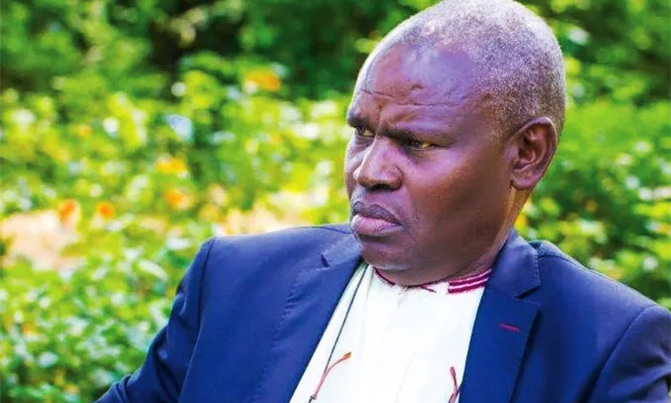Cathy Mcpherson never forgot the day she first came across a copy of National Geographic magazine. Her father, a university professor of linguistics, always came back home with a bunch of magazines like TIME, New Yorker, LIFE, Sports Illustrated, Readers Digest and more. There was also this magazine with glossy pictures of often distant dark skinned peoples, secluded away in some tropical forest in the Amazon or lost down on a remote island floating on the Pacific ocean, that caught Cathy’s attention most.
National Geographic fascinated her as here she read about a semi- nude people, hunting down and feasting on wild meat, retiring to dance excitedly beneath a full moon. At a very early age she decided she would study more about such remote tribes.
Once admitted to university she decided to major in anthropology after her first degree, a subject that explores the lives and cultures of peoples in different habitats. For her Ph.D the university required her to venture out and write an original thesis about a distant tribe that westerners had little knowledge of. Of course such tribes were becoming rare but through connections at her local church where there was a mission organization targeting un reached tribes with the Gospel of Jesus Christ, she came across one.
“There is this tribe of the Togela peoples who only allow in visitors briefly,” a missionary at her church shared. “Perhaps you could go there and help us understand why there are so resistant to the Gospel.”
With the help of this missionary Cathy was allowed in to study the ways of the Togela . “If you have not come here to preach to us about abandoning our ways of life and take up yours we can even allow you stay longer,” Chief Asilika nyo welcomed her.
Ever adventurous Cathy quickly settled among these secluded people. She would rise up early from her thatched hut and after a breakfast of yams with hot tea spiced with lemon grass, walk down bare feet to clear bushes for plantations. She worked with the women and their little kids with extended bellies. The men would meanwhile splinter off to the forests where they spent the day hunting, sometimes returning late at night with their trophy.
In the evening these men would sit around in a circle to sip a brew which had been prepared by the women, upon return from the gardens. Seeing all, Cathy made her first observation- “in this culture the women are ever bent in back breaking chores while the men feast from their captured wild meat to dance and clap. It is not good.” She wrote.
The Togela culture forbade women to taste beef and sip on intoxicating brew, a high offense which could lead to a woman being ostracized from the tribe. But being a foreigner Cathy was given a pass; she tasted some of the roasted game meat, which she found delicous.
One day Cathy also took a sip of the local brew. She had noticed that the men could spend almost all night sipping on it after a hunt while munching their roasted meat called muchomo. The brew called Lira-lira had an effect on them and would get the men jumping up and down in a wild dance as they called for more liquor to be served. Exhausted they staggered back to their huts where they would commence on beating the very women who had been serving. Sometimes it was like the whole village was lost in wails from these beatings by drunken men. In the morning one after the other the women swept away broken teeth while nursing their black eyes. “This needs to change,” Cathy wrote.
Back at her home Cathy had grown up around various spirits and brandies which her father regularly imbibed, and she an occasion lazily sipped too. But the day she decided to take a few sips of Lira- lira she quickly blacked out. After she got up from her delirium there were dark men standing over her, pointing to her lamely, “Poor white woman weak! She can’t stand our Lira- lira.”
Back on her feet Cathy wondered how any people could drink so strong a brew ( Lira- lira could even light up like paraffin) night out after night. When she started asking her women friends, at first they laughed her off. But gradually as she gained their confidence they started opening up to her.
“Those men drink so much because there are unhappy,” said Abyotodde, one grandmotherly confidant. “They need to for there are hurting so much.”
“What is it you are talking about?” Cathy asked.
“You see here we have so many secrets,” Abyotodde pulled her within ear’s reach. “Lira- lira helps break our men free for a while.”
“Can you let me on in some of those secrets,” Cathy whispered.
After glancing around and seeing no one was within ear’s reach, Abyotodde started. “We have men who get home and after beating their wives turn on their daughters and rape them,” she said, her eyes melting with tears. “Those men could be a product of rape too and they grew up very embittered. You wait when we go to war with one of the neighboring tribes and you will see what I mean.”
The Togela people regularly engaged in bloody scuffles with neighboring tribes. One day it was reported a hated tribe had encroached upon the Togela land. In the deep of the night, Chief Asilika nyo sounded a war drum. All the men came out dressed in war garb of animal skins. Without waste they started pursuing the enemy. At dawn they returned with a column of prisoners. What happened thereafter shocked Cathy.
The prisoners were pushed down in a trench which served as a prison. For Cathy the rules of war dictated that a prisoner of war should not be tortured or maimed. Yet here now they started freely torturing war captives, including pulling their nails off, one by one.
Peeping from her hut and overwhelmed by deafening wails Cathy noticed that the men who indulged in this torture seemed to relish it all. They casually bludgeoned their captives to death with small hoes, pushing bodies off like some useless cockroaches.
“They do that because there are hurting within,” Abyogedde, explained to Cathy once they got together. “Our people grow up feeling unloved because of all the abuse they endured. They have bottled anger and this is why you should never stand in the way of a Togela who is mad. Anything can happen.”
Deeply concerned Cathy decided to approach Chief Asilika nyo. “Chief I know I am a visitor but I want to help on some important matter.”
“What is it my child,” Chief Asilika nyo said in a fatherly voice.
Cathy pulled her stool nearer. “Why is there a lot of domestic violence here? Your men habitually beat your mothers down to bloody beads. Some have told me the men are also victims because they grew up seeing their fathers unleash reigns of terror in homes. They don’t know how to express themselves other than through violence. This is why after war they ghoul out captured prisoners eyes, yet torture is forbidden among civilized people.”










